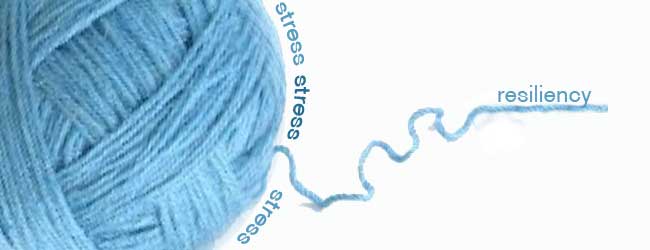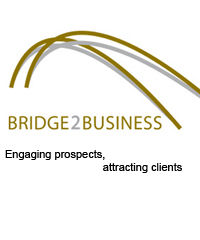Strategic agility and customer responsiveness are essential to the success of organizations today. The culture of speed, competition and the rapid changes brought on by technology and globalization cause many executives and managers to struggle to move ahead of the competition within and outside their organizations.
Senior executives and managers report feeling stress. Sources noted for causing stress are deadlines, interruptions and conflicting responsibilities. Executives point to stress caused by budget constraints as well as deadlines. Other common causes of stress are making the numbers, personal/family issues, criticism and the economy.
Stress, however, is a fact of life – and work. The key to weathering storms is in how you handle stress. If you accept that “stress happens” then building both personal and organizational resiliency will help you and your organization weather the inevitable storms. That means being pro-active about nurturing your resiliency.
What is resiliency? The origin or the word comes from mid 17th century from Latin leaping back from the verb resilire - to spring back. Resiliency is the ability to bend back into shape after bending, stretching or being compressed. It is the ability to stand or recover quickly from difficult conditions and setbacks.
Resiliency is not a luxury for leaders. Like a bank account, if you withdraw from your wellness account without replacing this energy, you eventually end up energetically, emotionally, spiritually and mentally “bankrupt”.
Environments of high stress make it difficult to maintain personal resiliency and well-being. Yet, a shift in thinking to viewing your personal resiliency as a component of leadership and an influence on organizational success repositions it as an integral component and essential. The shift in thinking makes building your personal resiliency as rewarding as innovation, learning, creativity, problem-solving and decision-making, all outcomes of being personally and organizationally resilient.
How can you nurture your personal resiliency? By being self-aware and noticing what contributes to your energy and well-being and what detracts from this, then taking consistent actions and behaviors that maintain y
Reflect on these questions:
- Describe how you feel when you are confident and at “the top of your game” – mentally, emotionally, physically and spiritually.
- What are the top five “needs” or a better way of saying it, “requirements for wellbeing” that you feel you must meet in order to decrease your stress and increase your capacity to handle your leadership role? Some typical answers from my clients may be: quiet time for reflection, spiritual practice, physical activity or a work out in the morning, eating nutritiously, making time for friends, activities that are “fun”, sailing, other hobbies and more.
- What structures in your life do you need to create that support your well-being? Some typical answers: working out with a friend, taking a retreat every couple of months, jogging in the morning, hobbies and more.
- What is the first, second and third action you need to take to get these needs addressed or met?
- What is the affect you personally will experience once these needs or requirements are met?
- How will the affect of getting these needs/requirements met impact your ability to lead your staff, manage yourself and effectively handle the changes at work?
- If your personal ability to recover from setbacks is enhanced, how might that affect the organization’s ability to do the same?
- What successes can you point to that have been influenced by your resiliency?
- What are the lessons learned from being resilient?
- If your ability to leadership capability increases as a result of your personal resiliency, what can you model for others and how might this impact the organization’s culture, creativity, productivity and overall performance?
Life and work come at you quickly and, sometimes, with little forgiveness. Positioning yourself to be adept, agile, and responsive while having the energy to nurture future leaders in your organization contributes to the organization and to your own career path. Don’t take your resiliency for granted. The ability to recover quickly from inevitable set backs could mean the difference between struggle and success.

By Alicia M. Rodriguez, M.A., P.C.C.
Alicia is the founder of Sophia Associates, Inc., an international executive and leadership coaching practice dedicated to enhancing leadership competencies, strengthening executive performance levels, creating opportunities for personal learning and developing high performing teams.More info
Visit her site: sophia-associates.com
Pictures: Filmagen
More Business articles /
Do you wish to write for Colors?






